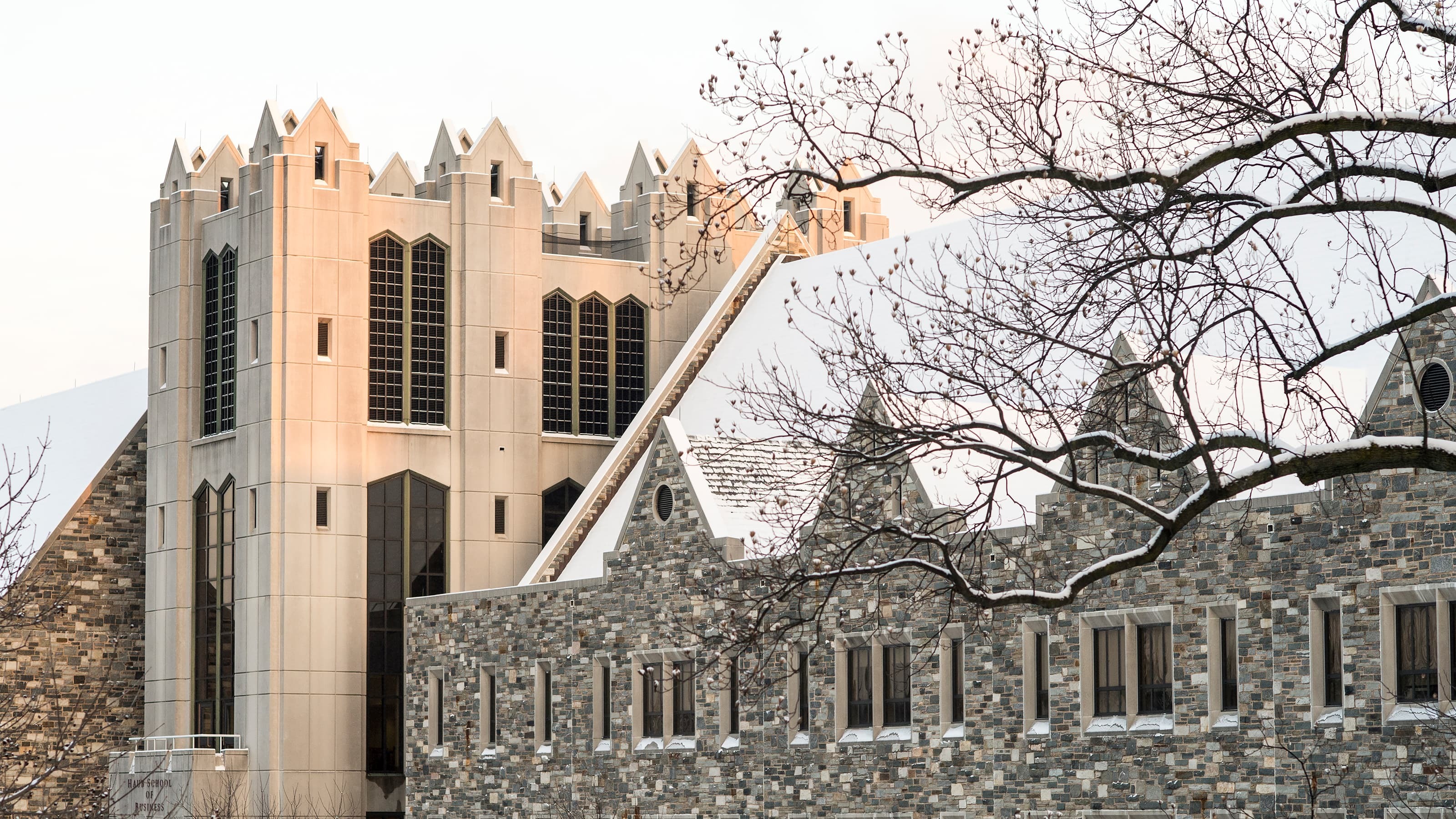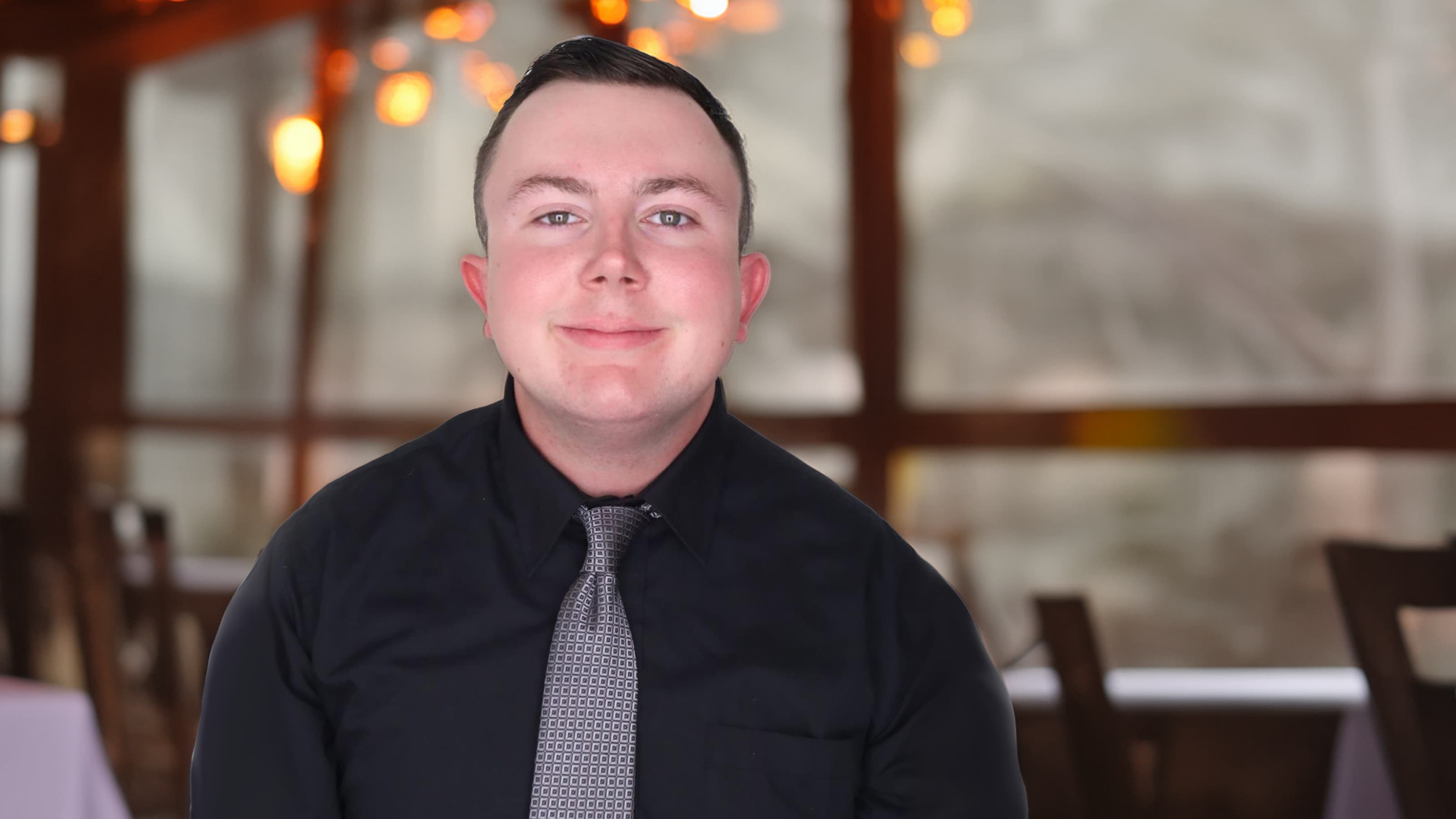Planting Seeds of Hope: How Saint Joseph’s Students are Using Horticulture Therapy to Alleviate Dementia Symptoms
Saint Joseph’s University students are studying how horticulture therapy can bring joy to elder Jesuits with dementia, potentially helping with anxiety and depression.

At Manresa Hall, home to senior Jesuits on Hawk Hill, students from Saint Joseph’s University’s Institute of Clinical Bioethics (ICB) are taking a holistic approach to treating anxiety and depression in dementia patients through plant therapy.
The study focuses on the neuropsychiatric symptoms of the illness — symptoms which, according to student researcher and biology major Fredy Abboud, BS ’26, “don’t really come across just from looking at a person.”
These symptoms, including anxiety, depression and agitation, are well documented but don’t get as much attention in medicinal research as other symptoms like memory loss.
“People have been looking for a more natural means to approach these effects given that the medications right now haven’t really made strides to help these patients,” Abboud explains.
Enter therapeutic horticulture. After reading about its positive effects in a 2023 systematic review, Manresa Hall Director Josita Starrs, MS ’04, BSN, RN connected with Peter Clark, S.J., PhD, professor of theology and religious studies and director of the ICB. From that collaboration, the Therapeutic Horticulture Project was born.
The project, which is funded by a research grant courtesy of alumnus Michael Morris, BS ’56, employs students to guide the participants in both active and passive engagement activities in sessions every few weeks.
“The activities really span the spectrum from actually doing the planting and designing to creating bouquets and designing wreaths and other creative expressive work to even just thinking of an idea for how to design a pot or something,” Abboud explains.
“It gives them real joy to participate in the project. The interesting thing is, they don’t recall us precisely, but they really remember the activities well. They tend to talk about it for the next couple of days.”
Fredy Aboud, BS ’26
One of the group’s recent activities included making a “leaf book” by collecting leaves on a walk and adding them to a laminated book for a keepsake.
“It gives them real joy to participate in the project,” Abboud says. “The interesting thing is, they don’t recall us precisely, but they really remember the activities well. They tend to talk about it for the next couple of days.”
Passive activities have included two trips to Longwood Gardens in Kennett Square to spend an afternoon observing nature.
The participants are evaluated every four months to determine where they fall on the clinical depression scale, but to Starrs, the impact of the activities is obvious.
“It’s one Jesuit to one student, and they work closely together,” Starrs explains. “A lot of the men have plants in their room and love to garden, so they look forward to the activity and look forward to the students because they are so engaged with them.”
Jesuit Anthony Berret, S.J., says gardening alongside new companions has been his favorite part of the program.
"I love planting,” says Berret. “My family always had both flower and vegetable gardens and I would help out with them. [This project] has been a very profitable experience and I’ve enjoyed socializing with the students."
Participation also benefits the students, both as researchers and as caretakers. After over eight months with the Jesuits at Manresa Hall, the project grew to include work with the Sisters of Mercy at the McAuley Convent, allowing students to expand their study to include both males and females.
“This gives us as undergraduates the experience we need and gives us insight into what a clinical study might look like, and on the other hand, we may actually be benefitting the priests [and nuns],” Abboud says. “I feel much more knowledgeable about how to care for the elderly and these interactions give you a whole different insight into medicine.”



